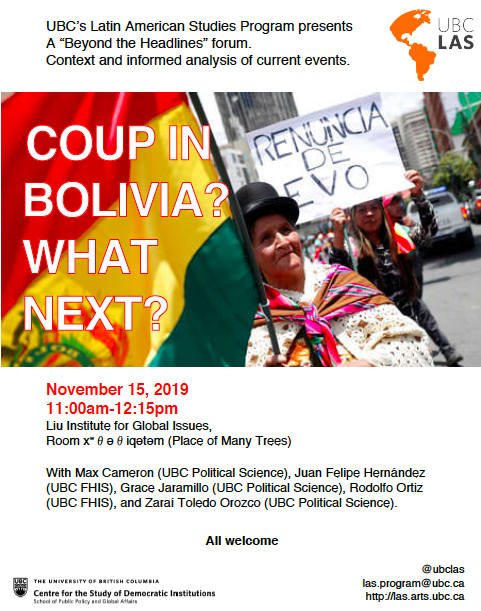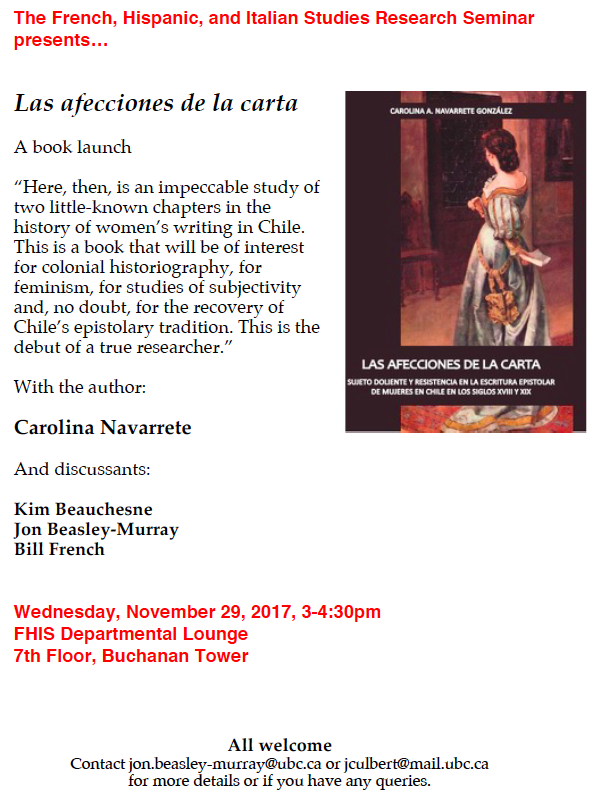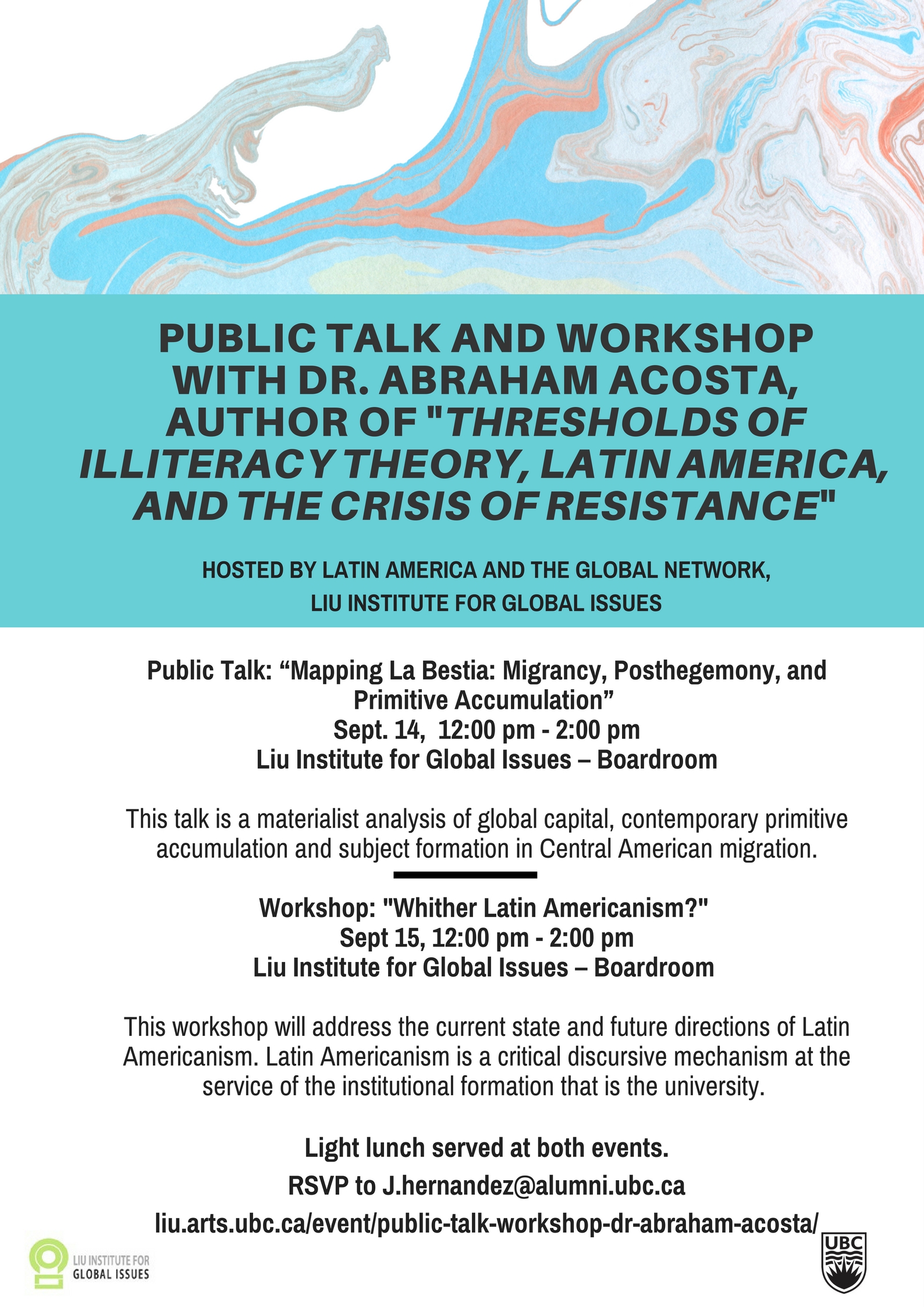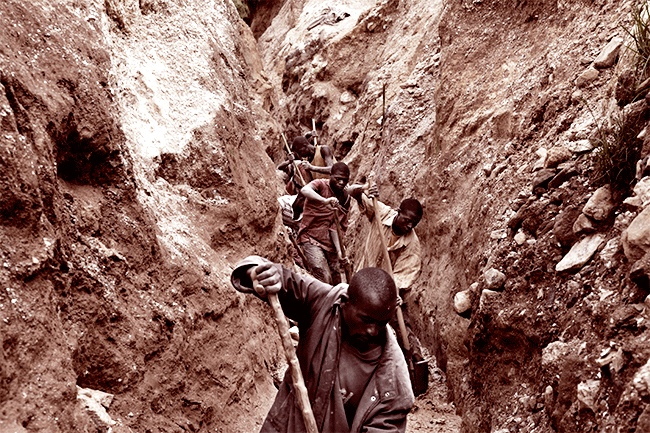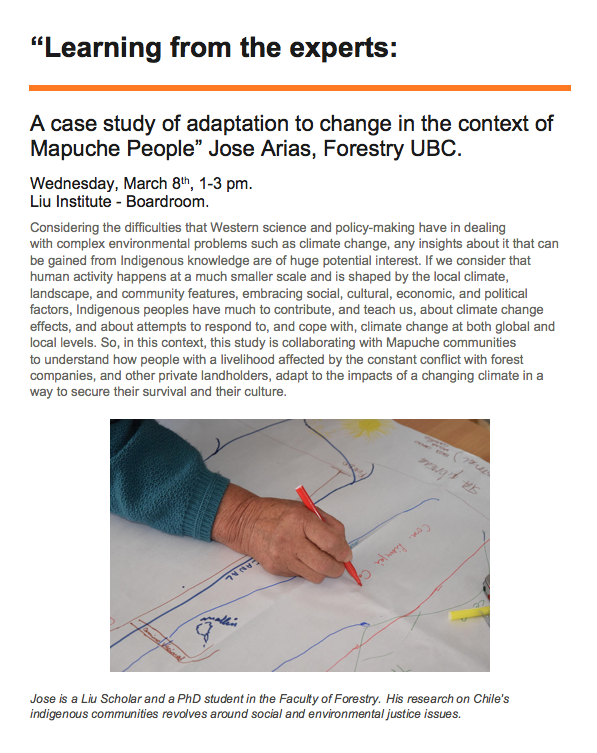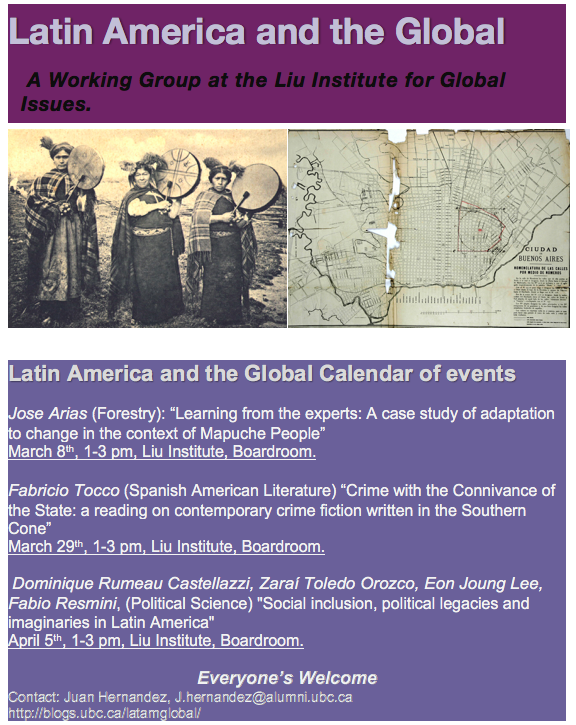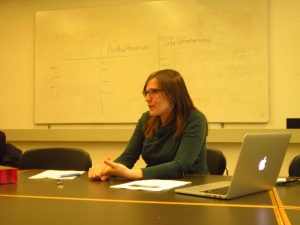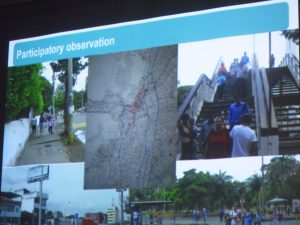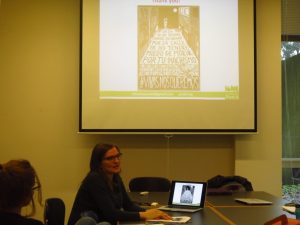Category Archives: Uncategorized
Join us for the book launch “Las afecciones de la carta”
Between a Rock and a Hard Place: Democracy and Politics in the Andes after the Commodities Bonanza
Bram Acosta Talk “Mapping La Bestia: Migrancy, Posthegemony, and Primitive Accumulation.”
BRAM ACOSTA AT UBC
Hi everyone, thanks for coming and participating in the Public Talk and Workshop with Professor Abraham Acosta last week. We had a rich and stimulating discussion about important if perhaps under-studied events. We recorded the Public Talk for those who could not make it.
Talk given for the University of British Columbia working group on “Latin America and the Global,” at the Liu Institute for Global Issues. September 14th, 2017.
We apologize that the first minute or two of the talk did not get recorded.
Stay tune for more events this and next term.
Public Talk and Workshop with Dr. Abraham Acosta
Social, Mixer, Meeting, Happening… Friday, Sept. 15th at Koerner’s
“Social inclusion, participation and political legacies in Latin America” Wednesday, April 5th
“Social inclusion, participation and political legacies and in Latin America”
Zaraí Toledo Orozco– “The State in Retreat: Private Governance and the Criminalization of Artisanal Mining”
Dominique Rumeau Castellazzi– “Welfare States and Models of Capitalism in Latin America”
Eon Joung Lee – “Implementation of Participatory Budgeting: Lessons from Brazil, Uruguay, Chile and South Korea”
Next week’s presenters are a group of political science Ph.D. students working on Latin America.
They will be talking about different but overlapping themes, ranging from obstacles to state development to the diffusion of participatory innovations in the region. Zaraí will look at the phenomenon of artisanal mining and discuss how private governance has assumed roles traditionally pertaining to the state. Dominique will question the theoretical assumptions of the Varieties of Capitalism literature and their value in explaining the evolution of regional welfare state structures.
Finally, Eon Joung will discuss the variation in the success of participatory budgeting initiatives in Brazil, Uruguay, Chile, and South Korea.
We are all looking forward to being engaged in fruitful discussion.
Come join us!
April 5th, 1-3 pm
Liu Institute, Boardroom.
“Adaptation, Change & the Mapuche People” José Arias, Forestry.
Calendar of Events (Spring 2017)
How to re-desing the Latin American city?
PhD student Sara Escalante (SCARP) recently gave a remarkable talk about the needs of marginalized constituencies in the Latin American production of urban space. Her presentation, part of a larger collective project with Col·lectiu Punt 6, walked the audience through an urban audit commissioned by the city of Cali, Colombia. In explaining the specificities of place as an object always transversed by conflict, antagonistic interests and the hetero brilliantly analyzed by Michel Foucault, Sara produced a comprehensive reading of a city that poses every challenge for the planner; specially, for those who like Sara, are mindful of a multiplicity of microevents as experienced by groups -about whom designers usually give little thought: sexual minorities, sexual workers, slum dwellers, women, afro-colombians.
Sara’s voice in the context of a highly and thoroughly masculinized (and bureaucratized) profession such as Architecture and Urban Planning, was truly refreshing and stimulating in that it makes us uncomfortably aware of the dynamics of power (micro and otherwise) that still determine and oppress certain bodies in the urban space. In this sense, to approach a subject, a social problem, an issue from the methodological feminism exposed and espoused by Sara is to discover how the former can address not only explicit women’s concerns but those of the whole social fabric improving the city for all.
We look forward to hear about the city’s adoption of Sara and Col·lectiu’s recommendations.
Thank you all for attending.
And thank you Sara!

